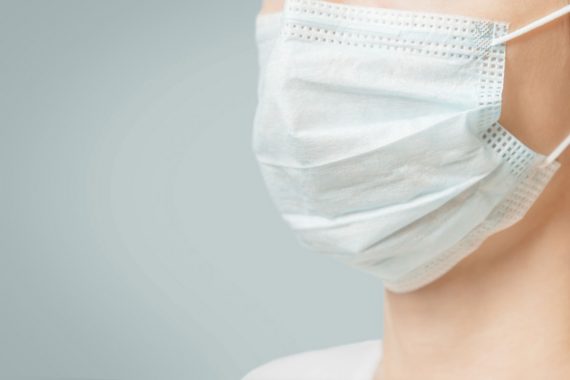Lockdown, social distancing and face masks ‘unequivocally’ reduced Covid-19 spread

Measures such as lockdown, social distancing and face masks were ‘unequivocally effective’ in reducing the spread of Covid-19 in the early days of the pandemic buying time for the development of vaccines and drug treatments, a report from the Royal Society has concluded.
The report looked at the international evidence for six non-pharmaceutical interventions used in the pandemic, including test and trace, and found they were clearly effective, particularly when used in combination.
Their use was most effective when the intensity of transmission was low, suggesting they are particularly useful early in a pandemic and at first sign of resurgence, the report based on six expert-led evidence reviews found.
Robust assessment of their effectiveness is vital given such measures can also have adverse personal, educational, and economic consequences, the authors noted.
While much of the evidence came from observational studies, the review careful inclusion criteria were applied to identify the most robust, high-quality data, the report said.
Social distancing, including restrictions on sizes of gatherings, and lockdowns were found to be the most effective category of interventions looked at in reducing transmission.
In care homes, measures such as cohorting and visitor restrictions were associated with reduced outbreaks, they found. For schools, the way rules were applied and the age of children impacted how well measures worked.
Although not every study agreed, there was consistent evidence that face masks were effective in reducing infection, the report said. And studies done in healthcare settings reported that for the most part, respirator-type masks such as N95s were more effective than standard surgical masks.
Several countries that had done high levels of contact tracing had found reductions in deaths and there was also strong evidence for the effectiveness of contact tracing apps, the review found.
Border controls did have some impact if quarantine was used but temperature screening or checking for symptoms before travel did not have a meaningful effect, the evidence showed.
Analysing the effectiveness of improved ventilation and air treatment or reduced room occupancy could not be done accurately as these measures were used alongside other interventions.
The report called for international protocols for conducting randomised controlled trials and observational research ahead of further pandemics and that studies consider the costs as well as the benefits of interventions, in terms of their impacts on livelihoods, economies, education, social cohesion, physical and mental wellbeing.
Professor Sir Mark Walport, foreign secretary of the Royal Society and chair of the report’s expert working group, said the review set out to answer important questions about which non-pharmaceutical interventions (NPIs) helped limit infections, and in what circumstances.
‘Covid-19 was the first global pandemic in human history where the use of non-pharmaceutical interventions bought time for the development of effective treatments and vaccines that saved many lives.
‘There is sufficient evidence to conclude that early, stringent implementation of packages of complementary NPIs was unequivocally effective in limiting SARS-CoV-2 infections.
‘That does not mean every NPI was effective in every setting, or at all times, but learning the lessons from the wealth of research generated in this pandemic will be key to equipping ourselves for the next one.’
Professor Christophe Fraser, professor of infectious disease epidemiology at the Pandemic Sciences Institute, University of Oxford, said more pandemics are likely and such interventions will be needed to keep infection in check.
‘Learning the lessons from Covid-19 is critical for improving our responses next time, as is sustained investment in public health and research.
He added: ‘Contact tracing apps could increase the chance of containing epidemics, and this authoritative review makes the case for a sustained investment in these novel tools.’
Visit Pulse Reference for details on 140 symptoms, including easily searchable symptoms and categories, offering you a free platform to check symptoms and receive potential diagnoses during consultations.









